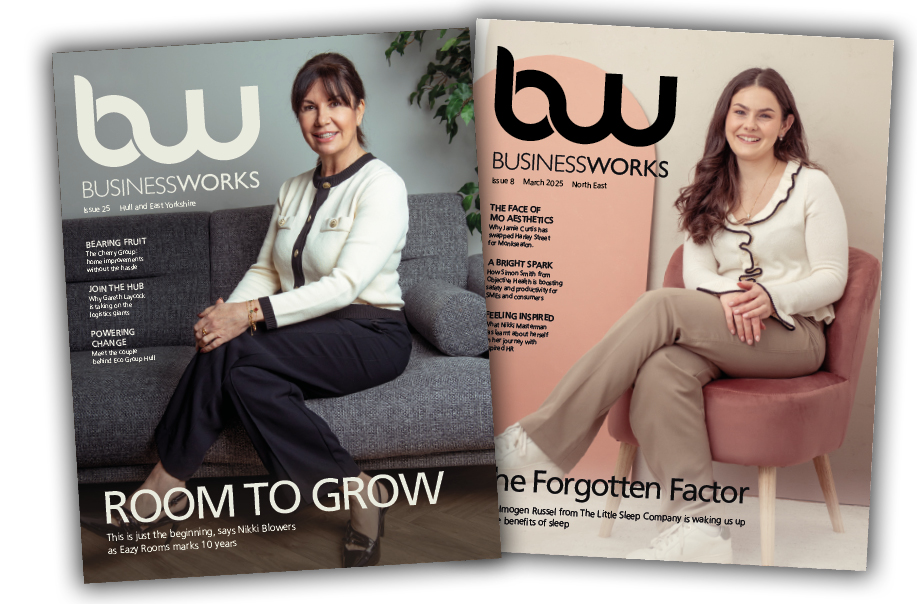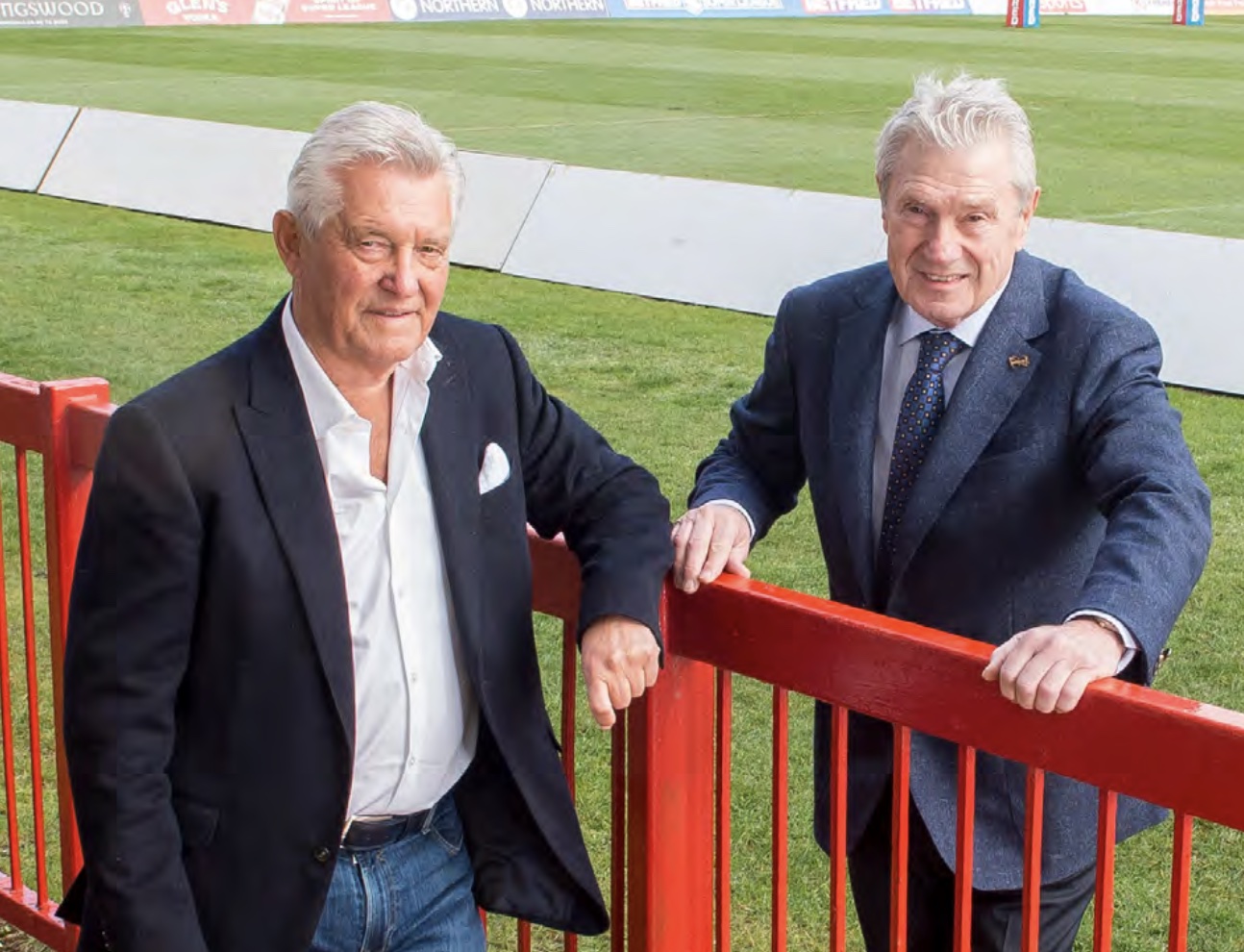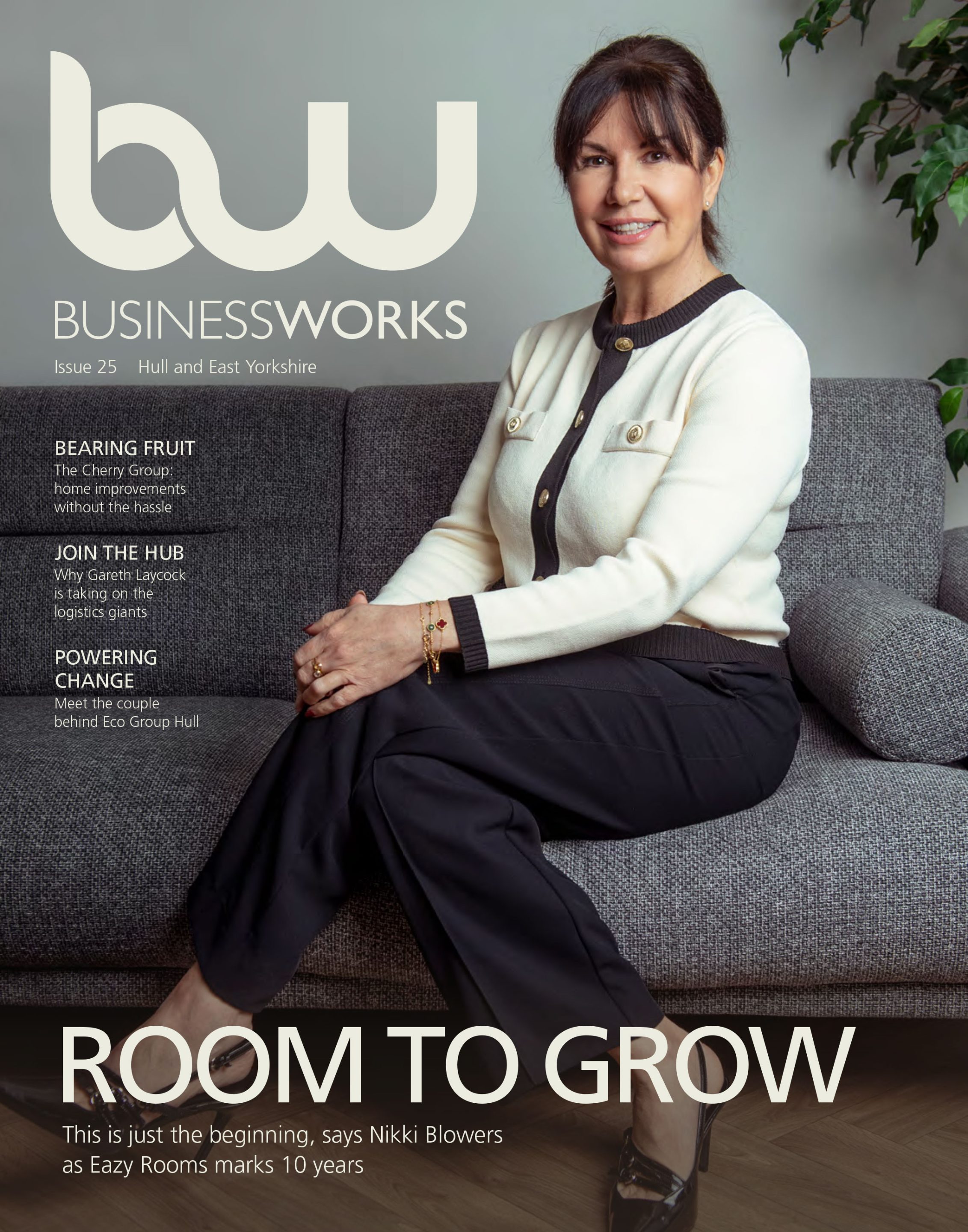Touchline conversion
It may be a bit difficult to fathom, but the two men who have their company names emblazoned across our biggest sporting venues are actually very private people, even bordering on shy at times.
Don’t be fooled either by Paul Sewell’s book, because it’s not all about him. Half a Lettuce, a lockdown literary masterpiece, began as an exercise to help relieve the boredom of a holiday in Tuscany. It became a compelling read, but the real value is as a fascinating insight into Paul’s various business interests in and around Sewell Group, and a compendium of essential advice for anyone looking to launch or develop their own venture.
David Kilburn, founder of MKM who still sits on the board to support CEO Kate Tinsley, says he would no more write a book than fly to the moon. That’s a shame because the story about how he led the development of a five-strong team into an army of 2,600 people working across more than 100 sites nationwide is inspirational.
They go back more than 40 years to their time as young men making their way in different strands of the construction industry.
Paul had joined the Sewell construction company, based in Sutton and founded in 1876. It was a family firm – not his family, but he grew into it very well. Over the years the business has evolved, branching into filling stations and convenience stores, facilities management, consultancy, investments, data mapping and intelligence.
It employs more than 500 people and looks after them better than most firms in the country, winning the Queen’s Award for Enterprise for Promoting Opportunity and making countless appearances in the UK’s 100 Best Companies to Work For Awards.
David progressed through various builders merchants during the 1970s and 80s and in 1995 founded MKM. The business boomed thanks to a strategy of rolling out a network of branches managed by people who were local to that community, and who held a stake in the business.
“We struck on a business model that happened to be a winner and had scale,” said David.
David will be 78 this year. Paul passed 70 last year. They continue to lead their businesses but have built strong management teams to shape the future. That frees up a bit of time to explore other opportunities, and it’s their partnership at Hull Kingston Rovers that has taken the business and sporting worlds by surprise, given their mutual passion for football.
On revealing the naming of Sewell Group Craven Park in January 2022, Paul confessed: “I’m a round-ball man because in sport, just as in business, I prefer a predictable bounce.”
As he admired the traditional style and glowing potential of the stadium from his perch on a sofa in a smart executive box, David admitted: “Rugby has never been my game. My old headmaster at Marist was very dismissive and disrespectful about rugby league.
“I’ve been to rugby league games here once, and once at the Boulevard, and we are going back a long time. It could be 60 years. I’ve never played it and it was never on the agenda but I would like a crack at kicking goals, maybe even playing half-back.
“It’s a simple game in many ways and that’s why it attracts a lot of families, but the reason I am here is because of Paul. He came to me and asked if I would be interested.”
Paul’s connections began when his son Patrick sponsored the club with the Sewell on the go brand, with the club playing its part by committing to player appearances at the filling stations.
Paul said: “Patrick found the club really good to work with. They gave really good value. In doing that we came across Neil Hudgell, and got to know him as friends. That led to the stadium sponsorship and they over-delivered and were so eager to please. I found I quite liked it here.”
We gloss over the increasingly commercial and elitist football world with which both men are very familiar and focus instead on the community feel in and around rugby league, and particularly Hull Kingston Rovers.
The pitchside photography session finds the pair occasionally glancing elsewhere to acknowledge smiles and waves from the players returning after a training session. The support from the new board extends to guiding club staff on the commercial aspects of the organisation, and offering pointers for players who are venturing into business in preparation for careers outside the game.
Paul said: “We are a board that has come here to help and to attract investment and make this the best-run Super League club in the country, not the richest. That’s why we’ve got the best business people I know.”
Between them the new arrivals could certainly muster the financial clout to transform the Robins, but in a sporting world full of stories of boom and bust the priority is to lighten the load on Neil Hudgell and build a sustainable future in line with the IMG masterplan.
A key appointment was Paul Lakin as CEO. A former commercial director with the Robins, Paul worked in football with Stoke City and Wolves and then came back to east Hull. His brief was to sell the club, but the prospect of a new structure changed all that.
Paul said: “Neil couldn’t put any more money in and he wasn’t used to working with a board. Paul Lakin wasn’t used to working without a board. He initially came in to try and sell the club but things changed.
“I agreed a business plan with Paul and set about finding a board and a chair. They looked around and asked me to do it.”
The biggest move in paving the way to the new era was the deal agreed by Paul Lakin with Hull City Council to get the stadium into the club’s ownership. Rovers also hold an option on 15 acres of neighbouring land that will provide a variety of commercial opportunities currently being explored by specialist developer Genr8, which is known to CEO Paul for a transformational project it delivered in Stoke.
Chairman Paul notes the parallel between regenerating an area of unfashionable Stoke and working on a consultation to do the same in east Hull.
He said: “There’s something inside me that loves the unlikely. I have always been a challenger brand at Sewell Group and if I were a football team I’d be in the third round of the FA Cup trying to do a giant-killing act.”
The view to the south and east of the stadium shows the potential with Siemens, Green Port, Saltend and the Yorkshire Energy Park. The outline for the area around Sewell Group Craven Park is more modest but equally relevant.
Paul said: “It’s a community here and the development will reflect that. The idea is for mixed use, and details will be released soon in the planning process. It’s not a competitor to the plans in west Hull, the focus is about leading the local economy and making the world a better place for the people wo live here.”
David added: “It’s about getting a better environment in the city that we are proud of. I want to live in an environment where we all have access to all the things any other major city would have.
“Why should we accept second best as a city? We haven’t built second-best businesses. We have built first-class businesses, and if we can do that we can help other people do that.”
Paul said: “I have had offers to go and join an existing board but that’s boring. Here there’s so much to achieve. There was one person I knew I could work with and I took the view that if you don’t ask you don’t get. David said he would think about it and then came in. It gives us the opportunity to work together at the end of our careers and it’s now or never for this club.”
Ends.



